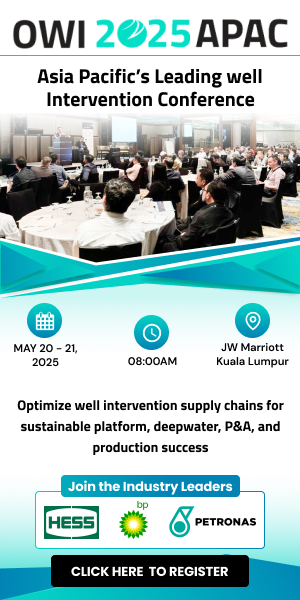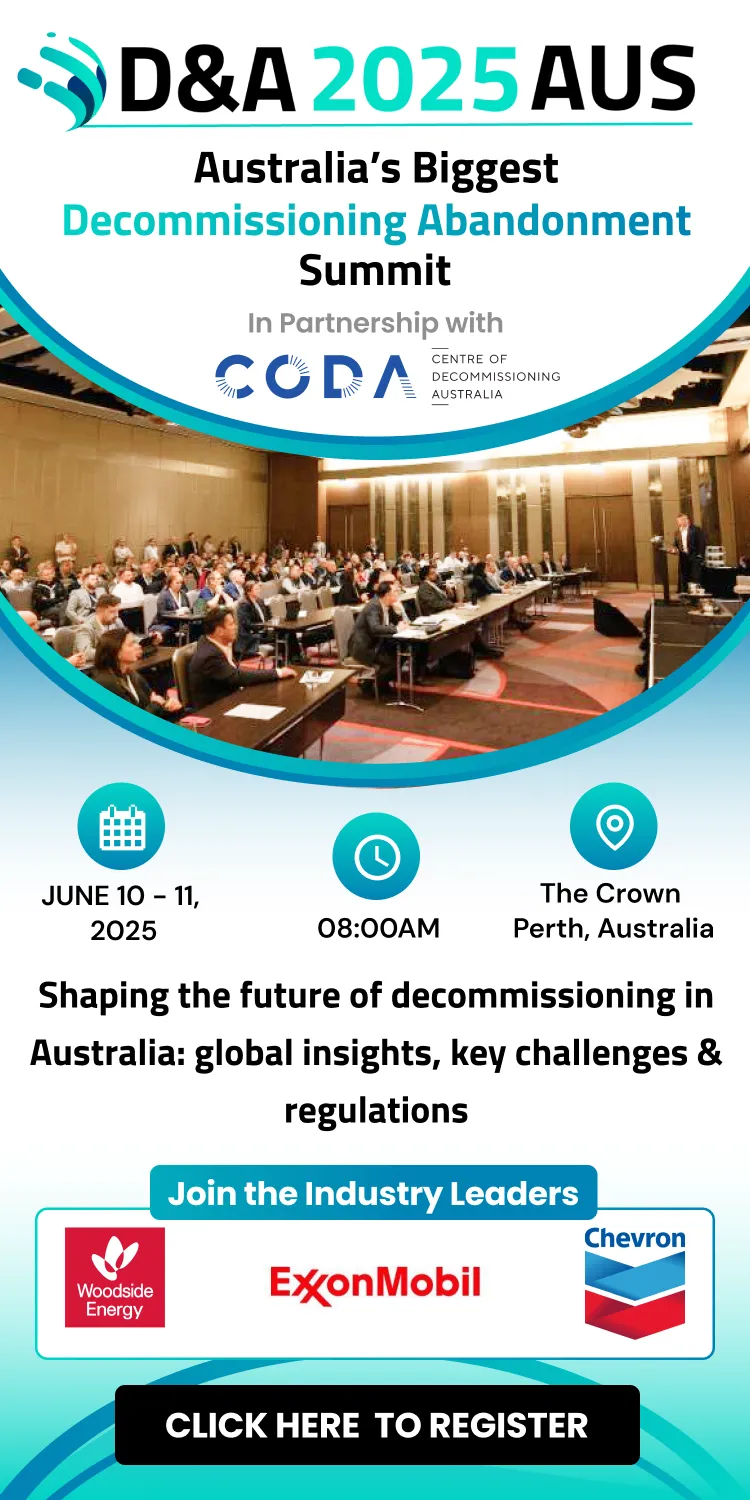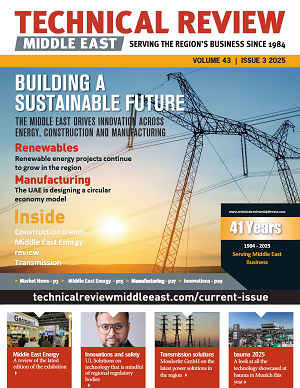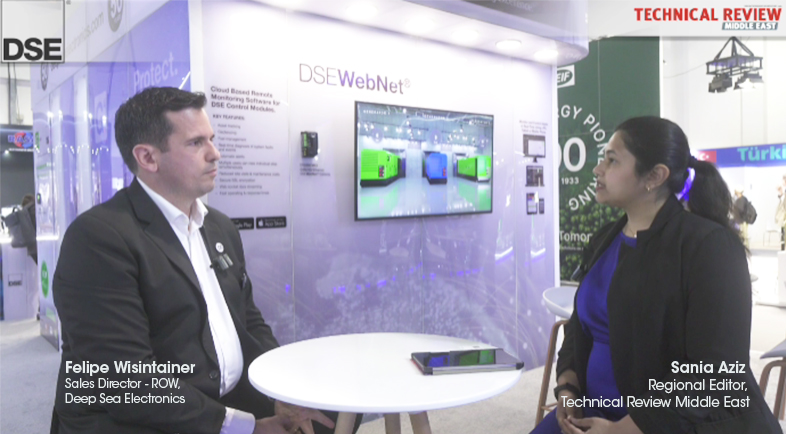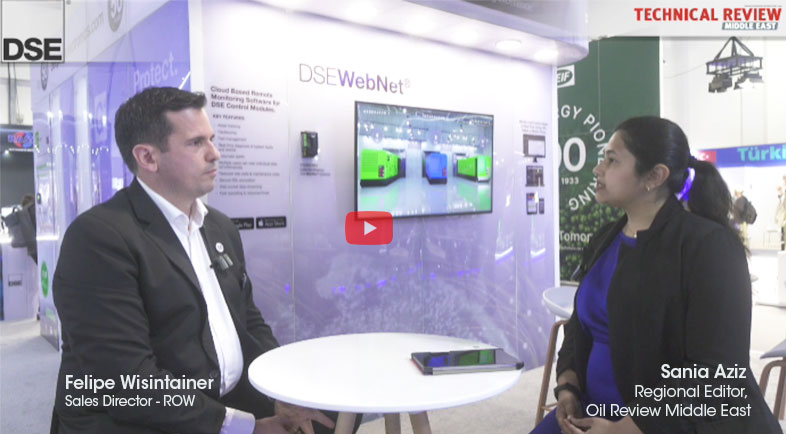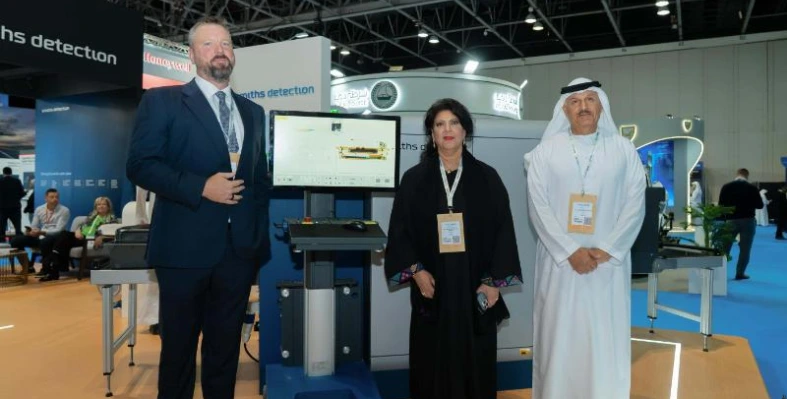In The Spotlight
ADNOC has launched “Make it with ADNOC”, a first-of-its-kind mobile app designed to accelerate local manufacturing and support the UAE’s industrial growth.
Developed in alignment with the Make it in the Emirates initiative, the app provides real-time visibility into ADNOC’s procurement pipeline, allowing manufacturers, SMEs, and entrepreneurs to identify long-term local production opportunities.
The app promotes smarter business engagement with ADNOC by enhancing transparency, streamlining supplier onboarding, and helping companies make informed investment decisions. The launch event took place at ADNOC’s headquarters, where HE Omar Al Suwaidi urged industrial players to participate in the upcoming Make it in the Emirates forum from 19-22 May at ADNEC, Abu Dhabi.
More than 500 companies are expected to attend the forum, which will showcase investment opportunities, industrial enablers, and incentives from key government entities, national champions, and financial institutions.
The app’s launch builds on the success of ADNOC’s In-Country Value (ICV) programme, which has reinvested AED242 billion (US$65.9bn) into the UAE economy and facilitated the employment of 17,000 Emiratis in the private sector since 2018. ADNOC now aims to inject a further AED200 billion (US$54.5 billion) into the economy over the next five years through the ICV programme.
Abu Dhabi's growing needs
Yaser Saeed Almazrouei, ADNOC executive director, people, commercial & corporate support, said, “We are delighted to launch Make it with ADNOC mobile app as it will provide businesses with real-time visibility into the products we plan to purchase and offer them a more streamlined, integrated process to capitalise on the significant local manufacturing opportunities we are creating. As a key catalyst of the Make it in the Emirates initiative, ADNOC continues to drive new and innovative ways to boost local manufacturing and strengthen the resilience of the UAE’s industrial base. We encourage new and existing businesses to leverage Make it with ADNOC app to directly engage with us and unlock mutual value.”
His Excellency Omar Al Suwaidi, Undersecretary of the Ministry of Industry and Advanced Technology (MoIAT), said, “In collaboration with strategic partners, MoIAT continues to advance the National Strategy for Industry and Advanced Technology, Operation 300bn, and enhance the competitiveness of the UAE’s industrial sector.
“This new platform will provide manufacturers and investors with real-time information on opportunities within ADNOC’s value chain. This will enable companies to identify products that they can manufacture in line with ADNOC’s procurement needs. This will empower them to make more informed investment decisions based on accurate data. It will also help enhance supply chain resilience and sustainability, support national self-sufficiency, and contribute to the objectives of the National ICV Program by stimulating local manufacturing and fostering long-term industrial partnerships.”
HE Omar Al Suwaidi encouraged manufacturers, investors, and suppliers to participate in the largest and most comprehensive edition of Make it in the Emirates, taking place from May 19-22 at ADNEC, Abu Dhabi.
He noted that more than 500 companies will participate to explore new investment opportunities, industrial enablers, and incentives offered by government entities, national champions, financial institutions, and technology providers.

Project Hajar is one of the world’s first operations to durably store captured atmospheric CO₂ underground. (Image source: 44.01)
Project Hajar, a partnership between 44.01 and Aircapture, has been named the top performer in the Air category of the XPRIZE Carbon Removal competition, receiving a US$1mn XFACTOR award.
The initiative, based in Fujairah, UAE, combines Aircapture’s Direct Air Capture (DAC) technology with 44.01’s mineralisation process to permanently lock away atmospheric CO₂—preventing it from ever re-entering the atmosphere.
The four-year global competition, backed by Elon Musk and the Musk Foundation, sought scalable carbon dioxide removal (CDR) technologies that could operate at the gigatonne level. Out of more than 1,300 teams from nearly 80 countries, 20 finalists were announced in May 2024, with the winners unveiled today in New York.
Local support
Project Hajar is one of the world’s first operations to durably store captured atmospheric CO₂ underground. XPRIZE judges praised it as a high-quality, scalable solution with strong potential to support global climate goals.
The project was supported by ADNOC and the Fujairah Natural Resources Corporation.
44.01 has already demonstrated its mineralisation process in Oman and the UAE and is now focused on international expansion.
Talal Hasan, founder and CEO of 44.01, said “The success of Project Hajar is testament to the leading role our region can play in decarbonising our atmosphere, providing new jobs and opportunities as we navigate the energy transition. Our climate needs decarbonisation solutions that can be deployed at scale, and we are working hard to scale up our technology in the Middle East and export it around the world.”
Matt Atwood, founder and CEO of Aircapture, said “This recognition from XPRIZE underscores the strength of our vision for deploying carbon removal infrastructure that is both rapidly scalable and economically viable. While many are focused on future capabilities, our modular system is already operating in the field—delivering measurable results today. We’re honoured that the XPRIZE judges acknowledged the commercial and technical merits of our approach, which is designed for near-term impact and long-term scalability.”
“At this critical turning point for our planet, the technologies developed by these winning teams represent hope with a broad range of approaches that are suitable for different geographies and can help the world reach net zero and ultimately reverse climate change,” said Anousheh Ansari, chief executive officer, XPRIZE. “We cannot stabilise our climate without sustainably and safely extracting carbon from our atmosphere and oceans at large scales. I’m incredibly proud of the ways this XPRIZE competition catalyzed and fostered the innovation and collaboration necessary to build this critical new industry that was missing prior to our competition.”
France’s top mobility innovators converged in the UAE for the UAE-France Rail & Mobility Days 2025, held in Abu Dhabi and Dubai on 23-24 April. The event, spearheaded by Business France, showcased cutting-edge French expertise in rail and sustainable transport, while deepening strategic cooperation with the UAE.
As the UAE ramps up investment in next-generation transport infrastructure, the event offered a platform for French companies to engage directly with Emirati stakeholders. Major developments include:
-
A US$13.6bn share in the GCC-wide 2,117 km rail network.
-
A high-speed rail line linking Dubai and Abu Dhabi, expected to be completed by 2030.
-
Dubai Metro’s expansion, aiming to serve 200,000 passengers daily by 2030, with construction underway and a total investment of US$4.9bn.
-
Abu Dhabi’s US$6.8bn investment in 155 transport projects, targeting a doubling of public transport use by 2028.
-
A national goal to reach 50% electric vehicle adoption by 2050.
In this context, Rail & Mobility Days 2025 was designed to match French innovation with the UAE’s ambitious infrastructure and sustainability goals.
High-level meetings and industry engagement
In Abu Dhabi, the French delegation was welcomed by H.E. Nicolas Niemtchinow, French Ambassador to the UAE, before engaging with key stakeholders such as Etihad Rail, Hafeet Rail, Abu Dhabi Mobility, and the Abu Dhabi Transport Company. Delegates also toured the Etihad Rail Al-Faya depot and attended the Electric Vehicle Innovation Summit to explore opportunities in the EV space.
The Dubai leg of the programme featured opening remarks by H.E. Jean-Christophe Paris, followed by panel sessions with the Roads and Transport Authority (RTA), DEWA, Ras Al Khaimah Municipality, Al Naboodah Transport, and others. Discussions spanned metro and tram development, electric mobility, and the broader energy transition.
French capabilities on display
French companies demonstrated their leadership in transport innovation. Dassault Systèmes, the event’s gold sponsor, presented its advanced 3D design and virtual simulation tools for mobility planning. Other major players included VINCI Construction Grands Projets, specialists in large-scale infrastructure; and RATP Dev, experts in public transport operations.
SMEs also had a strong presence, including Apave, ATEIS, ATM Internationale, CBM Company, Codra, MPH Experts, OXYSIGN, MIPI, Manquillet Parizel, and Saarstahl Rail—each offering niche expertise in areas such as infrastructure safety, maintenance, digital engineering, signage, and railway metallurgy.
The initiative was organised by Business France, with support from Terracotta Manpower, reinforcing France’s long-term commitment to supporting the UAE’s infrastructure evolution.

The Middle East continues to develop its fossil fuels, along with renewables. (Image source: Adobe Stock)
Optimism about industry growth in the energy sector, as well as about energy transition prospects, is stronger in the Middle East and North Africa than anywhere else in the world, according to DNV’s Energy Insights 2025 Report
According to the report, based on an annual survey of more than 1,100 senior professionals, 84% of respondents in the Middle East and Africa express optimism about energy industry growth prospects compared to 68% globally, and this figure has risen sharply from 69% last year. The report highlights that the energy sector is booming in the region, as many countries look to develop both their renewable and fossil fuel resources, noting that it has become the fastest-growing renewables market outside China, mainly thanks to solar sector growth. Installed solar capacity is forecast to rise to 100GW of installed capacity by 2030, up from just 23GW today, with Saudi Arabia looking to generate half of its domestic electricity from renewables by 2030, including 40GW of solar PV – six times the current capacity. Early this year Masdar announced a 5.2GW solar plant combined with a 19GWh battery storage facility, making it the largest combined solar battery energy storage system (BESS) in the world.
At the same time, the region is continuing to develop its fossil fuels, particularly natural gas, DNV notes. Iran, Qatar, and Saudi Arabia are in the world’s top ten natural gas producers, while other countries are also growing production. The combination of gas and solar is a winning one, with solar offering a cheaper and cleaner way to meet rising domestic electricity demand, while natural gas can be profitably exported.
Middle East and Africa respondents are most optimistic about reaching revenue and profit targets in the year ahead, at 73% and 71% respectively, compared with 63%/54% in North America, 58%/48% in Europe, 55%/52% Asia Pacific and 63%/54% Latin America.
Uncertain political environment
The report highlights the uncertain policy and geopolitical environment, particular in the US, with political risk seen as the leading constraint to growth. Recent geopolitical shifts have caused considerable uncertainly, with a lot of capital being diverted from renewables into oil and gas, and emerging technologies such as green hydrogen CCS, green steel and synthetic fuels being negatively impacted.
Reflecting this uncertainty, several oil and gas companies, (bp for example), have scaled back renewables commitments over the past year and increased their investment in fossil fuels. 53% of oil and gas sector respondents say they will prioritise fossil fuels over renewables over the next five years — up from 46% a year ago, while 24% of respondents in the power sector are looking to prioritise fossil fuels over renewables over the next five years, more than double the figure (11%) of a year ago. While optimism in the oil and gas sector has held steady over the past two years, standing at 66% in 2025, most oil and gas respondents (60%) say that political issues such as elections, policy uncertainty and regime change are a major threat to success in the year ahead.
Policy reversals and uncertainty are expected to hold back the energy transition in some sectors and regions, with only 55% of energy industry professionals now believing the energy transition is accelerating, sharply down from 79% two years ago. A key factor noted is the shift in investor sentiment. However, many organisations continue to invest in sustainable energy, taking a medium to long-term view.
Certain parts of the world are positive about the pace of the energy transition, notably the Middle East and Africa region, where 77% say the pace of the energy transition is accelerating, and Asia Pacific, where the figure is 68%. In contrast, only 47% in North America and 48% in Europe think the pace is accelerating.
"Despite global economic and political uncertainty, most of the energy industry maintains a general optimism, supported by megatrends such as electrification and energy demand," says the report. "Energy security and affordability have become priorities and are influencing both oil and gas expansion and the acceleration toward renewables. Sentiment varies from region to region, with the Middle East and Africa the most optimistic, and North America the least."
The National Water Company (NWC) has begun a slew of wastewater treatment projects in Saudi Arabia, focusing on Jeddah and the country's northern borders.
It is launching 15 major development projects worth more than US$613mn (SAR 2.3bn) in Jeddah, aimed at enhancing wastewater services and operational efficiency for more than 1.3 million residents.
These initiatives form part of NWC’s wider strategy to expand infrastructure and improve service quality across key urban areas.
One of the flagship projects underway is the Eastern Tunnel Project in Jeddah, which involves constructing a sewage pipeline from areas east of Haramain Road to Lift Station 2 at the airport.
Valued at over US$206mn (SAR 774mn), the project will use advanced tunnelling technologies that minimise surface disruption, preserving traffic flow and existing services.
The 14 km transmission line will serve as a vital conduit for improving environmental systems in districts such as Braiman, Al Manar, Al Ajwad, and others, benefiting approximately 1.1 million people.
Additionally, NWC is developing a sewage lifting station at the airport with a daily capacity of 611,000 m3, at a cost exceeding US$244mn (SAR 915mn), to support pollution reduction and network expansion.
In the Samer districts, more than 17.8 km of new sewerage lines are being laid in a US$14.4mn (SAR 54mn) project, targeting 20,000 beneficiaries.
The company has also launched ten feeder line projects across several Jeddah districts and two surface water reduction initiatives in Bahra and Kilo 14, collectively valued at US$165.33mn (SAR 620mn).
In total, the Jeddah projects cover over 238 km and serve more than 184,000 people.
Supporting the northern residents
Through the company's Northern Cluster, NWC has also commenced work on two major sanitation projects in Saudi Arabia’s Northern Borders region, with a combined investment exceeding US$107mn (SAR 400mn).
The first project involves the construction of a tertiary wastewater treatment plant in Arar, designed to handle up to 40,000 m3 per day, alongside a lifting station with a capacity of 72,000 m3 per day.
This initiative alone is valued at more than US$91mn (SAR 341mn).
The second project focuses on expanding sewage infrastructure in Rafhaa Governorate, where over 74 km of sewage pipelines will be laid, and a lifting station with a 22,000 m3 daily capacity will be built at a cost of more than US$15.7mn(SAR 59mn).
NWC stated that these projects align with its broader strategy to meet rising demand for water and sanitation services, while also contributing to improved quality of life and supporting the goals of Saudi Arabia’s Vision 2030.
The company added that these developments aim to accelerate development and to increase the percentage of services in unserved districts to increase operational efficiency in the water and wastewater sector.
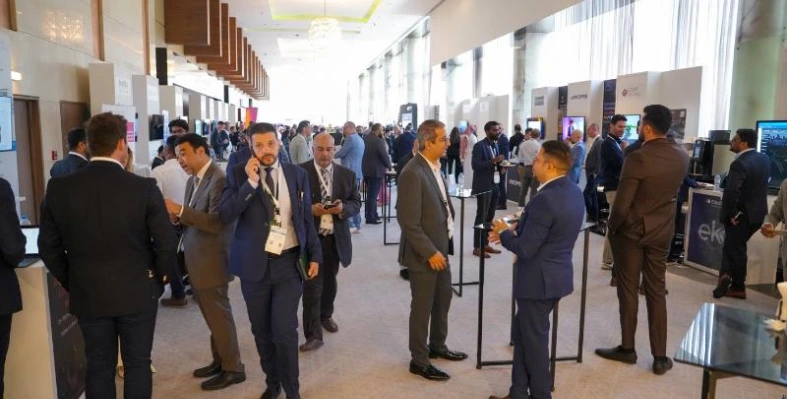
Organised by Ventures Connect, this year’s edition featured over 160 expert speakers. (Image source: CTF)
The eighth edition of the Construction Technology ConFex (CTF) and Property Technology ConFex (PTF) concluded on 1 May, with a major focus in advancing digital transformation across the built environment.
Held in Dubai with the backing of the Dubai Land Department and Dubai Municipality, the event attracted more than 1,000 participants, including developers, contractors, consultants, tech innovators and government officials. Delegates from across the region and beyond convened to discuss the latest developments in construction and property technologies, with a strong focus on sustainability, efficiency and smarter building practices.
Organised by Ventures Connect, this year’s edition featured over 160 expert speakers and 40 exhibitors. More than 550 business-to-business meetings took place during the event, fostering knowledge exchange and opening doors to new partnerships across the sector.
Key themes
The four main pillars of the conference agenda—Tech for Climate, Tech for the Social Agenda, Tech for Competitive Edge, and Tech for Productivity and Performance—all reflected the pressing need to meet national decarbonisation targets and speed up digital adoption.
Contech and Proptech's increasing convergence, which showed how the two historically distinct industries are developing into a single, tech-driven ecosystem, was a major theme. The presenters stressed that connecting these domains creates new efficiencies, promotes sustainability, and permits flexible spaces that can adapt to shifting user experiences and occupancy requirements.
AI and IoT, contemporary building techniques, robotics, common data environments, digital twins, and cybersecurity were among the technology focus areas. Additionally, the conference examined advancements in super applications, data centre infrastructure, and tech-enabled urban life.
Alec, Damac Properties, Masdar City, Group, Emaar, and Sobha Realty exchanged case studies, perspectives, and joint future aspirations. High-value networking opportunities and practical information aimed at enhancing capital expenditure (CapEx) and operational efficiency (OpEx) across the asset lifespan were advantageous to attendees.
The Construction Technology Awards 2025 honoured exceptional people, companies, and initiatives that demonstrated leadership in sustainability, innovation, and digital transformation. The awards, which received more than 300 nominations in 24 categories, raised industry standards and attracted regional attention.
Aisha Ali, COO, Premier Construction Software, headline sponsor of the event, said, “As a leader in the AI-powered construction ERP space, Premier Construction Software was thrilled to connect with fellow industry thought leaders at the 8th Annual Construction Technology Confex UAE 2025. This event allowed us to showcase how accounting software is transforming the way general contractors and developers operate. CTF is an ideal stage to champion innovation and advance the digital transformation conversation.”
“This was our biggest CTF and PTF to date, and the positive feedback from speakers, sponsors, and attendees underlines the growing importance of understanding how digitalisation and technology are transforming the built environment,” said Katie Briggs, director, CTF. “Contech and Proptech are evolving into a seamless ecosystem bound by technology, driving smarter, more efficient, and sustainable construction and real estate practices.”
In the high-pressure world of mining, quarrying, and construction, fuel efficiency is a make-or-break factor for both profitability and environmental impact.
Garry Moore, a veteran customer support manager at Rokbak, a Scottish manufacturer of articulated dump trucks (ADTs), has spent nearly 20 years refining strategies to optimise heavy equipment performance.
Here, Moore unveils seven expert tips for harnessing Rokbak’s Haul Track telematics system to slash fuel expenses, curb carbon emissions, and boost site productivity.
Here are seven ways to achieve it
1. Keep engines in top shape for fuel savings
A neglected engine burns more fuel and pumps out excess emissions. Haul Track’s real-time diagnostics alert managers to issues like blocked filters or suboptimal fuel systems, enabling quick fixes. By acting on these email notifications, operators ensure ADTs run lean, saving fuel and reducing environmental harm.
2. Spot and fix delays with idling insights
Trucks idling in queues waste fuel and stall progress. Using Haul Track’s GPS and idle-time tracking, managers can identify bottlenecks where ADTs wait for loaders. Moore suggests rebalancing fleet setups—adjusting loader or hauler sizes—to keep operations moving, cutting fuel use and CO2 output while ramping up efficiency.
3. Maximise loads with precision weighing
Half-empty trucks force extra trips, inflating fuel costs and equipment wear. Rokbak’s On-Board Weigh, synced with Haul Track, provides live load data, empowering operators to fill trucks to capacity every time. This approach boosts output, conserves fuel, and keeps production targets on track.
4. Redesign sites for shorter, smarter routes
Inefficient haul roads and traffic snarls sap fuel economy. Haul Track’s movement tracking, combined with fuel and idle reports, works across all equipment brands to highlight trouble spots. By streamlining routes and easing congestion, managers can trim fuel bills, lower emissions, and extend machine life.
5. Coach operators for smoother driving
Aggressive driving habits, like rapid acceleration or sudden stops, can inflate fuel consumption. Haul Track’s fuel usage comparisons reveal when specific trucks burn more than peers on similar tasks. Moore advocates using these insights for constructive training, helping drivers adopt smoother techniques to save fuel.
6. Protect tyres, save fuel
Underinflated tyres increase drag, forcing engines to work harder and wear out faster. Haul Track’s real-time tyre pressure monitoring catches issues early, allowing quick corrections. Proper inflation optimises fuel use, prolongs tyre durability, and enhances site safety.
7. Drive progress with clear performance goals
Haul Track’s robust data lets managers set fuel efficiency targets and monitor results over time. By analyzing trends and sharing feedback, teams stay motivated to improve. This data-driven approach fosters smarter decisions and a culture of continuous progress.
Moore’s strategies show that Haul Track is more than a data tool. It is a game-changer for cost-conscious, eco-aware operations. With these seven tactics, site leaders and operators can transform insights into action, driving down costs and emissions while keeping their sites running at peak performance.
ADNOC has launched “Make it with ADNOC”, a first-of-its-kind mobile app designed to accelerate local manufacturing and support the UAE’s industrial growth.
Developed in alignment with the Make it in the Emirates initiative, the app provides real-time visibility into ADNOC’s procurement pipeline, allowing manufacturers, SMEs, and entrepreneurs to identify long-term local production opportunities.
The app promotes smarter business engagement with ADNOC by enhancing transparency, streamlining supplier onboarding, and helping companies make informed investment decisions. The launch event took place at ADNOC’s headquarters, where HE Omar Al Suwaidi urged industrial players to participate in the upcoming Make it in the Emirates forum from 19-22 May at ADNEC, Abu Dhabi.
More than 500 companies are expected to attend the forum, which will showcase investment opportunities, industrial enablers, and incentives from key government entities, national champions, and financial institutions.
The app’s launch builds on the success of ADNOC’s In-Country Value (ICV) programme, which has reinvested AED242 billion (US$65.9bn) into the UAE economy and facilitated the employment of 17,000 Emiratis in the private sector since 2018. ADNOC now aims to inject a further AED200 billion (US$54.5 billion) into the economy over the next five years through the ICV programme.
Abu Dhabi's growing needs
Yaser Saeed Almazrouei, ADNOC executive director, people, commercial & corporate support, said, “We are delighted to launch Make it with ADNOC mobile app as it will provide businesses with real-time visibility into the products we plan to purchase and offer them a more streamlined, integrated process to capitalise on the significant local manufacturing opportunities we are creating. As a key catalyst of the Make it in the Emirates initiative, ADNOC continues to drive new and innovative ways to boost local manufacturing and strengthen the resilience of the UAE’s industrial base. We encourage new and existing businesses to leverage Make it with ADNOC app to directly engage with us and unlock mutual value.”
His Excellency Omar Al Suwaidi, Undersecretary of the Ministry of Industry and Advanced Technology (MoIAT), said, “In collaboration with strategic partners, MoIAT continues to advance the National Strategy for Industry and Advanced Technology, Operation 300bn, and enhance the competitiveness of the UAE’s industrial sector.
“This new platform will provide manufacturers and investors with real-time information on opportunities within ADNOC’s value chain. This will enable companies to identify products that they can manufacture in line with ADNOC’s procurement needs. This will empower them to make more informed investment decisions based on accurate data. It will also help enhance supply chain resilience and sustainability, support national self-sufficiency, and contribute to the objectives of the National ICV Program by stimulating local manufacturing and fostering long-term industrial partnerships.”
HE Omar Al Suwaidi encouraged manufacturers, investors, and suppliers to participate in the largest and most comprehensive edition of Make it in the Emirates, taking place from May 19-22 at ADNEC, Abu Dhabi.
He noted that more than 500 companies will participate to explore new investment opportunities, industrial enablers, and incentives offered by government entities, national champions, financial institutions, and technology providers.
France’s top mobility innovators converged in the UAE for the UAE-France Rail & Mobility Days 2025, held in Abu Dhabi and Dubai on 23-24 April. The event, spearheaded by Business France, showcased cutting-edge French expertise in rail and sustainable transport, while deepening strategic cooperation with the UAE.
As the UAE ramps up investment in next-generation transport infrastructure, the event offered a platform for French companies to engage directly with Emirati stakeholders. Major developments include:
-
A US$13.6bn share in the GCC-wide 2,117 km rail network.
-
A high-speed rail line linking Dubai and Abu Dhabi, expected to be completed by 2030.
-
Dubai Metro’s expansion, aiming to serve 200,000 passengers daily by 2030, with construction underway and a total investment of US$4.9bn.
-
Abu Dhabi’s US$6.8bn investment in 155 transport projects, targeting a doubling of public transport use by 2028.
-
A national goal to reach 50% electric vehicle adoption by 2050.
In this context, Rail & Mobility Days 2025 was designed to match French innovation with the UAE’s ambitious infrastructure and sustainability goals.
High-level meetings and industry engagement
In Abu Dhabi, the French delegation was welcomed by H.E. Nicolas Niemtchinow, French Ambassador to the UAE, before engaging with key stakeholders such as Etihad Rail, Hafeet Rail, Abu Dhabi Mobility, and the Abu Dhabi Transport Company. Delegates also toured the Etihad Rail Al-Faya depot and attended the Electric Vehicle Innovation Summit to explore opportunities in the EV space.
The Dubai leg of the programme featured opening remarks by H.E. Jean-Christophe Paris, followed by panel sessions with the Roads and Transport Authority (RTA), DEWA, Ras Al Khaimah Municipality, Al Naboodah Transport, and others. Discussions spanned metro and tram development, electric mobility, and the broader energy transition.
French capabilities on display
French companies demonstrated their leadership in transport innovation. Dassault Systèmes, the event’s gold sponsor, presented its advanced 3D design and virtual simulation tools for mobility planning. Other major players included VINCI Construction Grands Projets, specialists in large-scale infrastructure; and RATP Dev, experts in public transport operations.
SMEs also had a strong presence, including Apave, ATEIS, ATM Internationale, CBM Company, Codra, MPH Experts, OXYSIGN, MIPI, Manquillet Parizel, and Saarstahl Rail—each offering niche expertise in areas such as infrastructure safety, maintenance, digital engineering, signage, and railway metallurgy.
The initiative was organised by Business France, with support from Terracotta Manpower, reinforcing France’s long-term commitment to supporting the UAE’s infrastructure evolution.







